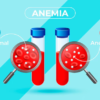Ayurveda for Menstrual Health and PMS
Ayurveda for Menstrual Health and PMS is an integral part of a woman’s overall well-being, yet it is often surrounded by stigma and discomfort. Many women experience premenstrual syndrome (PMS), a collection of physical and emotional symptoms that can significantly affect daily life. While conventional medicine offers various treatments, Ayurveda—a holistic healing system that originated in India thousands of years ago—provides a natural approach to managing menstrual health and PMS. This blog will explore the principles of Ayurveda, how they relate to menstrual health, and effective practices to alleviate PMS symptoms.
Understanding Ayurveda

Ayurveda, which means “knowledge of life,” is built on the idea that health is a balance of body, mind, and spirit. It recognizes that each individual is unique, with a distinct constitution (or “prakriti”) shaped by their physical, emotional, and environmental influences. According to Ayurveda, maintaining harmony within oneself and with nature is essential for good health.
The foundation of Ayurvedic medicine is based on the three doshas: Vata, Pitta, and Kapha. Each dosha represents a combination of the five elements (earth, water, fire, air, and ether) and embodies different physical and emotional characteristics. Understanding one’s dosha can provide insights into personal health needs, including menstrual health.
The Doshas and Menstrual Health
- Vata Dosha: This dosha is characterized by air and ether. Women with a predominance of Vata may experience irregular cycles, light flow, and symptoms such as anxiety or mood swings before their period. When Vata is out of balance, it can lead to dryness, coldness, and irregularity in menstruation.
- Pitta Dosha: Composed of fire and water, Pitta individuals tend to have a regular cycle and may experience heavier bleeding, intense cramps, or irritability. An imbalance in Pitta can lead to inflammation, heat, and excess emotions.
- Kapha Dosha: With a mix of water and earth, Kapha types may experience a sluggish cycle, heavy flow, and symptoms of lethargy or sadness. When Kapha is imbalanced, it can lead to stagnation and retention of fluids.
Identifying Your Dosha
Understanding your dosha can help you recognize your unique needs regarding menstrual health. Ayurvedic practitioners often use a combination of pulse diagnosis, observation, and questions about lifestyle and health history to identify doshic imbalances.
PMS: Symptoms and Ayurvedic Perspective
PMS symptoms can include mood swings, bloating, cramps, fatigue, and cravings. Ayurveda views these symptoms as manifestations of imbalances in the doshas, primarily Vata and Pitta. For instance, Vata imbalance may lead to anxiety and irregularity, while Pitta imbalance could manifest as anger and inflammation.
Key Factors Affecting Menstrual Health
- Diet: What you eat directly affects your dosha balance. A diet rich in whole, unprocessed foods, tailored to your dosha, can help regulate menstrual health.
- Lifestyle: Sleep patterns, exercise, and stress management all play crucial roles. A balanced lifestyle promotes harmony and reduces PMS symptoms.
- Seasonal Changes: Ayurveda emphasizes the importance of aligning your lifestyle with the seasons. Different seasons can impact dosha balance and menstrual health.
Ayurvedic Practices for Menstrual Health
1. Dietary Recommendations
- Vata Types: Incorporate warm, moist, and grounding foods such as cooked grains (like rice and oats), healthy fats (like ghee and olive oil), and sweet fruits (like bananas and berries). Avoid cold and dry foods that can aggravate Vata.
- Pitta Types: Focus on cooling foods such as leafy greens, cucumbers, and sweet fruits. Incorporate soothing spices like coriander and fennel. Avoid hot spices and excessive caffeine.
- Kapha Types: Include light, stimulating foods like bitter greens, legumes, and spices such as ginger and turmeric. Limit heavy foods and dairy.
2. Herbal Remedies
Several Ayurvedic herbs can support menstrual health and alleviate PMS symptoms:
- Ashwagandha: Known for its adaptogenic properties, it helps reduce stress and anxiety, balancing Vata.
- Shatavari: A popular herb for women’s health, it nourishes the reproductive system and helps regulate hormones.
- Turmeric: Its anti-inflammatory properties can alleviate cramps and promote overall well-being.
- Ginger: A great remedy for reducing nausea and bloating associated with PMS.
3. Yoga and Physical Activity
Yoga is an excellent practice for promoting hormonal balance and reducing PMS symptoms. Specific poses can target the pelvic area, increase circulation, and release tension. Some beneficial yoga poses include:
- Child’s Pose (Balasana): Calms the mind and relieves tension in the lower back.
- Cat-Cow Stretch (Marjaryasana-Bitilasana): Promotes flexibility in the spine and stimulates the abdominal organs.
- Seated Forward Bend (Paschimottanasana): Aids in calming the mind and relieving stress.
Regular physical activity also promotes circulation and hormonal balance. Aim for a mix of cardio, strength training, and flexibility exercises to maintain overall health.
4. Meditation and Mindfulness
Emotional health plays a vital role in menstrual health. Meditation and mindfulness can help manage stress and emotional upheaval associated with PMS. Practicing techniques such as deep breathing, guided visualization, or simply sitting in silence for a few minutes each day can cultivate a sense of inner peace.
5. Lifestyle Adjustments
- Sleep: Prioritize sleep hygiene. A regular sleep schedule helps maintain hormonal balance.
- Hydration: Drink plenty of water and herbal teas to stay hydrated and support bodily functions.
- Stress Management: Incorporate stress-reducing activities like journaling, walking in nature, or engaging in hobbies that bring you joy.
Conclusion
Ayurveda offers a comprehensive approach to managing menstrual health and alleviating PMS symptoms. By understanding your dosha and implementing dietary changes, herbal remedies, physical activity, and mindfulness practices, you can create a balanced lifestyle that supports your menstrual cycle. Embracing these natural methods not only enhances your well-being but also fosters a deeper connection with your body.
As always, it’s important to consult with a qualified Ayurvedic practitioner or healthcare professional before making significant changes to your health regimen, especially if you have underlying health issues or are taking medication. By integrating Ayurvedic wisdom into your life, you can empower yourself to navigate the complexities of menstrual health with grace and ease.








Leave a reply